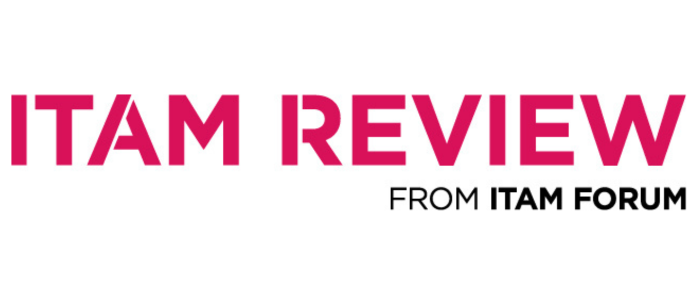Re-cycling hardware opens the door to re-cycling software
 In a recent article on process of the month, we looked at a process to address the recycling of software licences on an IT estate, based on the assumption that the hardware was live, and was remaining with the company and also that the software was not being used in a 90 day period.
In a recent article on process of the month, we looked at a process to address the recycling of software licences on an IT estate, based on the assumption that the hardware was live, and was remaining with the company and also that the software was not being used in a 90 day period.
However, if we then move forward to the point where the hardware is to be disposed of, then it would be prudent to doff our caps in the direction of the software and make sure that we don’t unwittingly dispose of software that might be resident on devices.
As an upstanding IT professional, you might take it upon yourself to ensure that your hard drives are (as a minimum) low-level formatted prior to disposal; indeed you might be under legal or regulatory requirements to ensure that you oversee this work (and let’s not forget, everyone in the UK is bound over by the Data Protection Act). But equally, you could be entrusting to a third party to purge your hard drives of all data and software and be happy with the WEEE disposal certificate that gets provided.
However, don’t forget that having received your WEEE disposal certificates, to ensure that your SAM suite can release those licences, you need to purge those disposed of machines from your inventory tool.
Inventory tools aren’t to know that you have disposed of a device; as far as they are concerned those disposed of devices are merely 30/60/90 days not on the network – and you need that degree of flexibility built into your inventory collection to accommodate laptops, mobile devices and those hard-to-reach non-networked devices that require manual inventory collection.
Do you remove your disposed of devices from your inventory tool?
In speaking with Phil Goldsmith of Scrumpymacs, a leading recycler of IT assets focusing on the Education Sector he encounters no end of organisations that don’t make this association within the hardware disposal process:
“Time and again, I keep hearing stories from colleges and universities on how IT budgets are constantly being squeezed but when I dig a little deeper, little or no effort is being made on accounting for software that might be on the kit we are taking away.”
But this is just half of the equation; having disposed of obsolete devices there’s a real chance that any software on those devices might also be obsolete.
So why not sell them on?
No, you haven’t entered an alternate universe – you are able to re-sell software licences, and (in part) we have Oracle to thank for this. As it was their attempt to sue a licence trader in Germany that saw the judge rule in favour of the re-selling activity. NB: It was never illegal to do so in the first place, but software vendors don’t like the activity as it might undercut the first-time sales that they strive for.
Discount-Licensing have been in this game for a while, and they will buy your licences from you (don’t be naïve enough to expect the retail price back for the software) and equally Corporate Licensing Exchange acts as a brokerage if you would like to go to market direct and see what deals can be made.
The re-sale value of the software depends upon the title, edition and age. I have heard rumours of circa 30% of the RRP being re-covered; and here’s a shot in the arm for the public sector: merely because you have bought licences within that sector, does not mean you can only re-sell those licences to that sector – so the percentages to be recovered could be even higher.
Aside from recovering residual value from assets that might previously have been viewed as CAPEX expenditure (and therefore a right off once made) this returns software to a true asset status i.e. software can (and should) be included as part of the tangible assets of the company which has the potential of adding millions to the value of large organisations, and should (at last) be given proper weight of attention in merger/de-merger activity (a primary driver for software vendor sponsored audits).
And a final benefit out of this emerging market practice…
Do you recall how software vendors might catch you out for compliance on legacy titles that are no longer sold and so force you to buy the newest release of software? Which of course was more expensive again? Well you have two companies above who you can approach for legitimate licences of the older versions of software (at a discount) that won’t try and force support and maintenance on the sale.
Re-cycling never looked so sexy!
Can’t find what you’re looking for?
More from ITAM News & Analysis
-
Broadcom vs Siemens AG - A Brewing Storm
The ongoing legal battle between VMware (under Broadcom ownership) and Siemens is yet another example of why ITAM goes far beyond license compliance and SAM. What might, at first glance, appear to be a licensing dispute, ... -
Shifting Left Together: Embedding ITAM into FinOps Culture
During one of the keynotes at the FinOps X conference in San Diego, JR Storment, Executive Director of the FinOps Foundation, interviewed a senior executive from Salesforce. They discussed the idea of combining the roles of ... -
Addressing the SaaS Data Gap in FinOps FOCUS 2.1
I recently reported on the FinOps Foundation’s inclusion of SaaS and Datacenter in its expanded Cloud+ scope. At that time, I highlighted concerns about getting the myriad SaaS companies to supply FOCUS-compliant billing data. A couple ...
Podcast
ITAM training
Similar Posts
-
The M&S Cyberattack: How IT Asset Management Can Make or Break Your Recovery
Marks & Spencer (M&S), the iconic UK retailer, recently became the latest high-profile victim of a devastating cyberattack. Fellow retailers The Co-Op and Harrods were also attacked. Recent reports suggest the rapid action at the Co-Op ... -
AI in ITAM: Insightful Signals from the Front Line
During our Wisdom Unplugged USA event in New York in March 2025, we engaged ITAM professionals with three targeted polling questions to uncover their current thinking on Artificial Intelligence—what concerns them, where they see opportunity, and ... -
How ISO/IEC 19770-1 Can Help Meet FFIEC Requirements
In the world of ITAM, the regulatory spotlight continues to intensify, especially for financial institutions facing increasing scrutiny from regulatory bodies due to the growing importance of IT in operational resilience, service delivery, and risk management. ... -
An Introduction to Scope 4 Emissions
Executive Summary For ITAM teams, sustainability is a core responsibility and opportunity. Managing hardware, software, and cloud resources now comes with the ability to track, reduce, and report carbon emissions. Understanding emission scopes—from direct operational emissions ...




